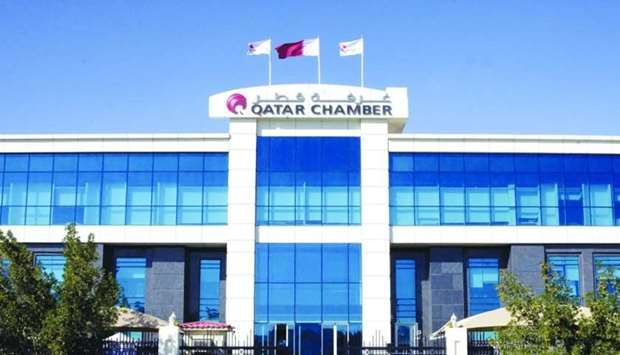Amid the Covid-19 crisis, Qatar’s competent entities are working to protect the economy and maintain its stability to ensure that necessary goods and services are provided to the public at reasonable prices, Qatar Chamber said in a report.
In its monthly economic newsletter for October, the Chamber reported that the State also strives to remove all obstacles facing producers and encourages them to increase production.
“The stability and flexibility of economic policies in any country is a key part of its economic agenda due to their significant impact on the investment climate, productivity and on the economic process in general.
“This means the country's ability to deal efficiently with all economic and financial fluctuations and reduce their impact on the economy and society. The State of Qatar adopts the free economy approach which limits the country's direct intervention in markets and thereby in fixing prices of goods and services,” the report said.
At the onset of the Covid-19 health crisis, Qatar Chamber’s board of directors held a meeting in March to identify proactive measures that would contribute to the government’s efforts in managing Covid-19 infections in the country and to minimise its impact on the economy.
During the meeting, the board decided that it will be “in permanent convention until the crisis ends.” The decision aims to enhance the private sector’s participation in managing the impact of the pandemic.
The board also agreed to form an emergency committee to follow up all developments at the level of all economic sectors and to serve as a focal point between companies and government agencies.
Similarly, the board also stressed the need to enhance co-ordination between all parties concerned to ensure the smooth and continuous provision of food products and goods in the local market.
Last month, Qatar Chamber's board member and head of Food Security and Environment Committee Mohamed bin Ahmed al-Obaidli led a meeting to address obstacles facing scrap companies.
The challenges faced by the sector include the significant difference of selling prices between exported scrap and those that are set by local factories that led to substantial losses for some of these companies due to the lack of competitiveness between local factories.
Al-Obaidli said setting fair prices will safeguard the interests of commercial and industrial sectors, and called on scrap companies to intensify efforts in manufacturing to achieve added value for the national economy.
In July, al-Obaidli chaired the same committee in a webinar with representatives of the Committee Tasked with Determining Maximum Prices and Profit Ratios and Food Outlets.
The meeting reviewed various challenges met by suppliers and distributors in registering new prices of foodstuffs and consumer goods that were listed by the committee. It also reviewed requests to increase prices of foodstuffs and consumer goods.
“The stability and flexibility of economic policies in any country is a key part of its economic agenda due to their significant impact on the investment climate, productivity and on the economic process in general.
“This means the country's ability to deal efficiently with all economic and financial fluctuations and reduce their impact on the economy and society. The State of Qatar adopts the free economy approach which limits the country's direct intervention in markets and thereby in fixing prices of goods and services,” the report said.
At the onset of the Covid-19 health crisis, Qatar Chamber’s board of directors held a meeting in March to identify proactive measures that would contribute to the government’s efforts in managing Covid-19 infections in the country and to minimise its impact on the economy.
During the meeting, the board decided that it will be “in permanent convention until the crisis ends.” The decision aims to enhance the private sector’s participation in managing the impact of the pandemic.
The board also agreed to form an emergency committee to follow up all developments at the level of all economic sectors and to serve as a focal point between companies and government agencies.
Similarly, the board also stressed the need to enhance co-ordination between all parties concerned to ensure the smooth and continuous provision of food products and goods in the local market.
Last month, Qatar Chamber's board member and head of Food Security and Environment Committee Mohamed bin Ahmed al-Obaidli led a meeting to address obstacles facing scrap companies.
The challenges faced by the sector include the significant difference of selling prices between exported scrap and those that are set by local factories that led to substantial losses for some of these companies due to the lack of competitiveness between local factories.
Al-Obaidli said setting fair prices will safeguard the interests of commercial and industrial sectors, and called on scrap companies to intensify efforts in manufacturing to achieve added value for the national economy.
In July, al-Obaidli chaired the same committee in a webinar with representatives of the Committee Tasked with Determining Maximum Prices and Profit Ratios and Food Outlets.
The meeting reviewed various challenges met by suppliers and distributors in registering new prices of foodstuffs and consumer goods that were listed by the committee. It also reviewed requests to increase prices of foodstuffs and consumer goods.

